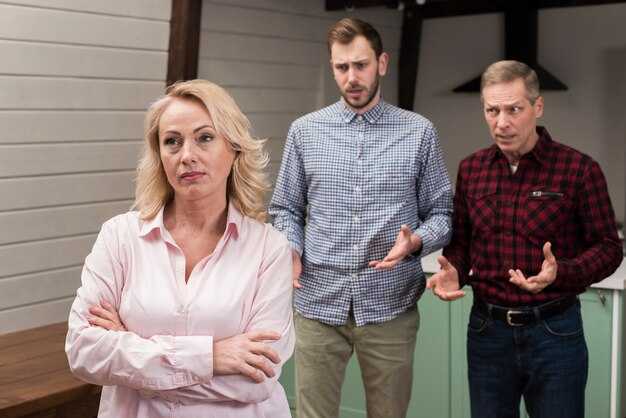At some point in every healthy partnership, both people will, without meaning to, wound or overlook each other — that’s unavoidable. If you deny ever having hurt your spouse, at the very least you probably accept that sooner or later one of you will feel wounded in the relationship, right? Consider this a reminder: what you do in those moments — whether you are the one who feels hurt and brings it up, or you are the one being told you hurt them — is often what determines whether your marriage thrives or unravels. In many ordinary marriages one partner will eventually approach the other, either calmly or frustrated, and say something like, “When you did X, or when you didn’t do X, I felt.” The issue is that even when that is offered without blame, many men still interpret it as an attack. When a wife shares her hurt or raises a complaint, far too often it’s heard as: “You’re not good enough; you must change.” In countless marriages, including my own for a long time, two common mistakes repeat. Either we retaliate — blaming, criticizing, yelling, or resorting to passive-aggressive tactics in the hope that the other will eventually “get it” or move toward us — which never fixes anything; or we immediately argue that they shouldn’t feel that way, insist they’re seeing things wrong, or insist their reaction is an overreaction and not our fault. That never works either. Often the pattern becomes toxic: instead of acknowledging the other person’s feelings, we cast blame; instead of calmly communicating, we attack their character with “you always,” “you never,” “you’re so lazy,” or “you don’t care.” And on the flip side, instead of listening, we make excuses; rather than hearing them out, we become defensive and correct their facts. Rarely do we actually try to understand the emotion underneath. If someone tells you you hurt them, you don’t get to decide for them that they weren’t hurt. If you react automatically rather than respond thoughtfully, one person will feel assaulted and the other will feel even more dismissed and alone than before. Over time, repeating that same fight and getting trapped in that cycle destroys intimacy, vulnerability, friendship, and trust — and once those erode, the marriage often follows. Think about what happens in those exchanges: by dismissing concerns or immediately moving into defensiveness, excuses, or belittling, you are effectively telling your partner that their perspective is wrong. You are not elevating or even considering their point of view. When you genuinely consider someone else’s perspective, you don’t mock it, eye-roll, or cut them off; you give them the space to explain. Remember, marriage vows committed you to occasionally take a back seat and prioritize the other person’s needs — “to love you selflessly,” to cherish “for better or worse.” Those promises count most when things are hard, not when everything is easy. Do something different: stop repeating what doesn’t work. Learn to honor and value your partner, to put their needs above your own. Right now she needs to be listened to with curiosity rather than judged. She needs to know her feelings and hurts are permitted and won’t be punished. She needs emotional safety — because the moment your partner doesn’t feel safe to speak their heart, the moment they stop wanting to be vulnerable because you keep invalidating or explaining away their feelings, you start walking a path that often leads to losing the marriage. It doesn’t matter if it’s unintentional: the result is the same. For many, that path ends in divorce. Don’t tell me you love her if she feels chronically neglected, unheard, disrespected, or hurt. Don’t claim to value her if you avoid conversations or dismiss her complaints — that’s not love; it’s avoidance, pride, or arrogance. Instead, picture a different scenario: your spouse tells you they’re upset — even about something you did without meaning harm — and even if you feel attacked and defensive for a moment, imagine you could pause, breathe, and say, “Tell me more about what made you feel that way.” Men are often the worst at this. Plenty want more sex and less fighting, but few understand the work required to reach that outcome. Step one is simply allowing her to explain. Too many men, including myself in earlier years, did not want our wives to elaborate about hurts that involved us. We didn’t want the explanation, we didn’t want to apologize, because we believed she was wrong and needed to be shown that. But here’s a crucial truth: you can be right, or you can be married. When one person “wins” an argument, the relationship loses. The best approach when your partner is hurt — especially if it stems from your behavior — is to slow the conflict down. Respond instead of react. Asking questions to understand her feelings signals that she’s important to you — more important than winning the fight. That is the dividing line between marriages that endure and those that fail: someone eventually stops focusing on defending themselves and starts responding with curiosity, kindness, and empathy. They seek to understand and validate their partner’s perspective even if they disagree. By doing so, they learn to repair disconnection rather than deepen it. Showing availability and a willingness to listen immediately reduces tension; feeling heard and prioritized makes complaints less frequent. You’d be surprised how much conflict diminishes, and how much more appreciation, affection, and yes, sexual connection follows, when she feels understood and valued. Great marriages don’t avoid conflict — they use it to grow. They learn what each partner needs to feel loved and then do more of that; they learn what causes emotional distance and do less of that. They listen for the pain beneath the anger, for the unmet need hidden under the complaint. That’s what emotionally healthy people do. You don’t have to destroy your marriage to learn how to love someone more than you love yourself. Next time you’re tempted to interrupt, explain away, or correct, try saying: “It wasn’t my intention to hurt you, and I’m sorry if I did. Can you tell me more about why you felt that way?” Has your spouse ever heard that from you? That’s how you show you value their experience. Men often say, “If it’s important to her, it’s important to me,” but few ask the hard, humbling question: “Have you ever held back from being vulnerable with me because of how I treated you before?” Very few men ask it — and very few enjoy the deep connection that follows when they do. Start with one small thing this week. Maybe it’s a sincere apology: “I’m sorry for the ways I’ve hurt or neglected you and didn’t even realize it. I’m sorry you didn’t feel safe telling me.” If that describes you, say it. Like unspoken gratitude, an unspoken apology is often read as apathy or entitlement. Don’t let that be the story of your marriage. Very few relationships end when both partners consistently choose selflessness, empathy, vulnerability, and intimacy. Yet most people won’t even look up what those practices are or how to apply them. So let’s practice them. Learn and act on what love actually demands: appreciation and affection, consideration and empathy, vulnerability and emotional connection. These are not optional extras; they are the pillars that determine whether a marriage is strong or fragile. Storms will come — how you face them decides which side of the 50 percent you’ll be on. This isn’t about perfection; it’s about direction and intentionality. Which way is your marriage moving? It’s moving somewhere, whether you notice it or not. Apathy, avoidance, busyness, and selfishness lead predictably to harm. Choose humility, self-awareness, transparency, and small consistent acts of kindness instead. Change one small habit this week, another next week — the little things build and sustain trust. Take that step now and keep going.
Practical steps you can use the next time your partner says you hurt them:
- Pause and breathe. Give yourself two or three slow breaths before responding so you don’t react from the defensive part of your brain.
- Listen to understand. Use reflective listening: “What I hear you saying is…, is that right?” or “Help me understand what that felt like for you.” Repeat back the emotion and content you heard.
- Validate the feeling without agreeing with every detail: “I can see why that would feel upsetting” or “That makes sense that you felt ignored.” Validation doesn’t mean you’re admitting wrongdoing; it means you’re acknowledging their experience.
- Avoid “yes, but” and correcting. Saying “I’m sorry you feel that way” is not the same as dismissing their hurt. Don’t follow an apology with immediate justification.
- Offer a repair statement when appropriate: “I’m sorry I hurt you. I didn’t intend to, and I want to do better. What would help you feel safer next time?”
- Make a concrete plan. Replace vague promises with specific actions: “I’ll put my phone away during dinner” or “I’ll check in with you before making that decision.”
- Use time-outs if needed. If emotions run too high, agree on a pause script: “I need 20 minutes to calm down. Let’s pause and come back at X time.” Commit to returning.
How to apologize so it actually repairs:
- Acknowledge the impact: state what you did or didn’t do and how it affected them.
- Take responsibility without minimizing or adding excuses.
- Express genuine remorse: a simple “I’m sorry” with eye contact and calm tone.
- Offer to make amends: ask what would help and follow through.
- Commit to change: outline the concrete step you’ll take and how you’ll be accountable.
Short phrase examples you can use right away:
- “Thank you for telling me. I want to hear more.”
- “I’m sorry you were hurt. I didn’t realize that — tell me what happened.”
- “I can see why you felt abandoned/ignored/disrespected. That wasn’t my intention.”
- “I need a minute to think so I can respond well. Can we pause and continue in 15 minutes?”
Daily and weekly habits that prevent repeated hurts:

- Weekly check-ins: 20–30 minutes where you ask, “How are you feeling about us?” and listen without fixing.
- Express appreciation daily: a short note, a quick “thank you,” or a hug for specific things she did or is doing.
- Schedule tough conversations at calm times, not when you’re rushed, tired, or stressed.
- Practice small acts of kindness consistently — they compound trust and goodwill.
- Learn your partner’s love-language cues and invest in those things specifically.
When to get outside help: if the same wounds keep happening, if one partner withdraws or stonewalls, if there’s emotional or physical safety concerns, or if attempts to change stall, couples therapy can give you tools and structured repair methods. A skilled therapist helps you break reactive loops and build new patterns.
Final note: change is ordinary and achievable when you choose consistency over perfection. Start with curiosity instead of defensiveness, validate before you explain, apologize without qualification, and follow up with concrete actions. Those small, sustained shifts will protect intimacy, rebuild trust, and keep your marriage moving toward connection rather than away from it.



 How to stop HURTING your partner.">
How to stop HURTING your partner.">

 Oszukiwanie to nie JEDYNY sposób, w jaki się nawzajem ZDRADZAMY.">
Oszukiwanie to nie JEDYNY sposób, w jaki się nawzajem ZDRADZAMY.">
 Kiedy Niepokojny Partner Wreszcie Wyrwie Się z Unikańczym">
Kiedy Niepokojny Partner Wreszcie Wyrwie Się z Unikańczym">
 Relacje są ZWYSTĘPIONE bez TEGO!!">
Relacje są ZWYSTĘPIONE bez TEGO!!">
 Dlaczego związki działają tylko wtedy, gdy masz granice (kompilacja 4 filmów)">
Dlaczego związki działają tylko wtedy, gdy masz granice (kompilacja 4 filmów)">
 7 oznak, że partner unikający przygotowuje się do odejścia (ostatnia boli najbardziej)">
7 oznak, że partner unikający przygotowuje się do odejścia (ostatnia boli najbardziej)">
 Jeśli ciężko pracujesz nad uzdrowieniem, ale szczęście nigdzie nie widać, spróbuj TO.">
Jeśli ciężko pracujesz nad uzdrowieniem, ale szczęście nigdzie nie widać, spróbuj TO.">
 Uratowałem swój związek, robiąc TO">
Uratowałem swój związek, robiąc TO">
 How to Stand up to Toxic In-laws">
How to Stand up to Toxic In-laws">
 The Secret to Getting What You Really WANT (and Stop Playing SMALL)">
The Secret to Getting What You Really WANT (and Stop Playing SMALL)">
 Here’s What It Takes to Face the Truth and Step Up Into Your Life">
Here’s What It Takes to Face the Truth and Step Up Into Your Life">